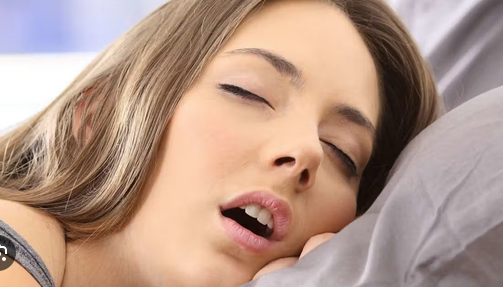Why You Salivate in Your Sleep and What Science Says About It

Waking up to find a wet patch of drool on your pillow might be a little embarrassing, especially if someone else notices. But truth be told, drooling during sleep is more common than most people think, and it’s not always a bad thing. In fact, science has some interesting explanations behind this nighttime phenomenon.....CONTINUE READING THE FULL STORY HERE
Drooling, medically referred to as sialorrhea, happens when saliva escapes from the mouth while sleeping. During the day, we naturally swallow our saliva without even thinking about it. But when we’re deeply asleep—especially in the REM (Rapid Eye Movement) phase—our muscles, including those in the face and mouth, relax completely.
This muscle relaxation can cause the mouth to open slightly, allowing saliva to pool and leak out.
People who sleep on their sides or stomachs are more likely to drool because gravity helps the saliva escape more easily. So, if you’re a side-sleeper, don’t be surprised if you wake up with a little puddle on your pillow.
Now, what does it mean health-wise? Occasional drooling is usually harmless and may even suggest that you’re entering deep, restful sleep. That’s good news—it means your body is getting the rest it needs. However, excessive or chronic drooling can be a sign of underlying issues such as sinus infections, allergies, acid reflux, or even sleep apnea. In children and older adults, it could also be linked to muscle or nerve control problems.
In some cases, certain medications may increase saliva production, or nasal congestion might force you to breathe through your mouth—leading to more drool.
To reduce nighttime drooling, try sleeping on your back, keeping your nasal passages clear, or adjusting your pillow to support proper head alignment.
So next time you find a little saliva on your pillow, don’t panic—it might just mean you had a really good night’s sleep. But if it becomes excessive or bothersome, it’s worth having a chat with your doctor.
